HOW TO CURATE A HANDGUN COLLECTION YOU’LL ACTUALLY SHOOT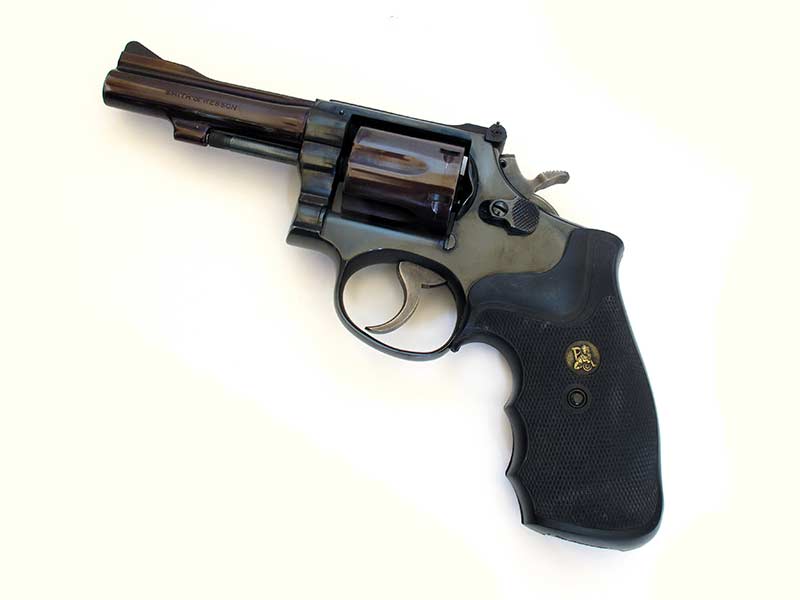
S&W Model 15: This classic medium-frame .38 Special typifies a simple and dependable “middle ground.” Not too hot, not too cold, but just right.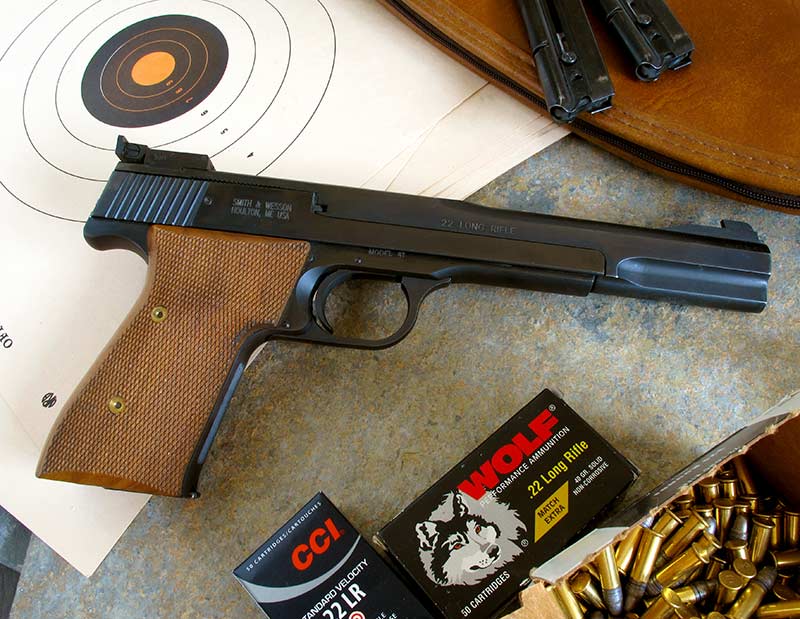
S&W Model 41 .22 LR: OK, it’s got a long sight radius, but the barrel configuration is light enough so it won’t wear you out. Sometimes you can have it all!
If you have kids (or were one at some point), I’ll go out on a limb and say you’ve heard the story of Goldilocks and the Three Bears. You know, the tale where the girl first eats three different bowls of porridge. One’s too hot, one’s too cold and the other is just right. Same with the chairs she sits in: one’s too big, one’s too small, one’s just right. Repeat until the kids fall asleep.
I might have saved a lot of time and money if I’d kept Goldilocks in mind on my journey to becoming a shooter and collector. A lot of my collection bounced from one extreme to another, with me over-intellectualizing why a certain handgun would be perfect if only…
Hopefully Goldilocks and I can save you a few missteps.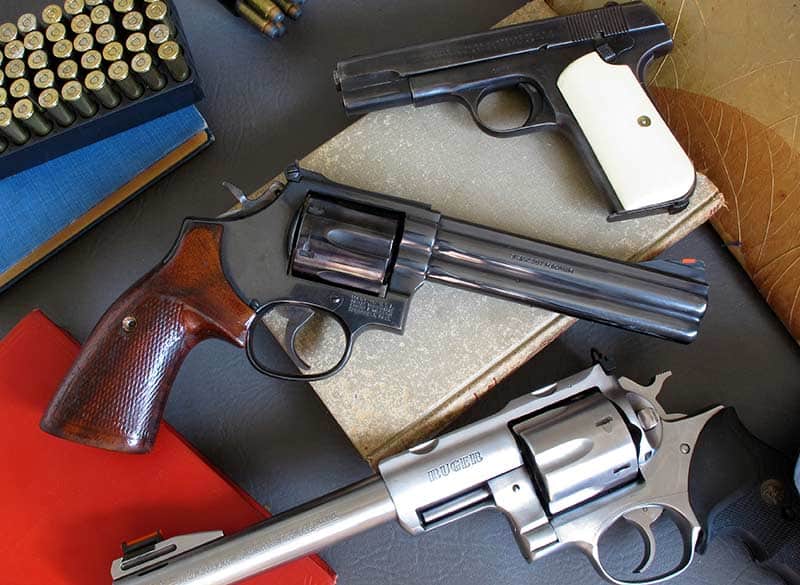
The long sight radius on the full-lug .357 S&W (center) is no ironclad guarantee it’ll make you shoot better.
This One’s Too Long
Having spent some time cutting my teeth on 3″ and 4″ barreled guns as a younger man, I somehow got the idea in my 20’s that what would make me more accurate was a longer sight radius. In theory, increasing the distance between the front and the rear sight allows for more precision, since the front sight can be more accurately placed dead center in the rear sight blade and errors of alignment become far easier to detect.
As a result, I bought both a Ruger Mark II with a 10″ barrel and an S&W Model 27 with an 8.375″ one. But what I found was these barrel lengths actually became distracting. As the front sight wobbled up and down in the rear notch, it required a tremendous degree of mental energy to hold the gun steadier than I really needed to make accurate hits. Worse yet, I had an increased desire to “snatch the shot” when my sight alignment looked perfect, resulting in a mashed trigger pull more often than not.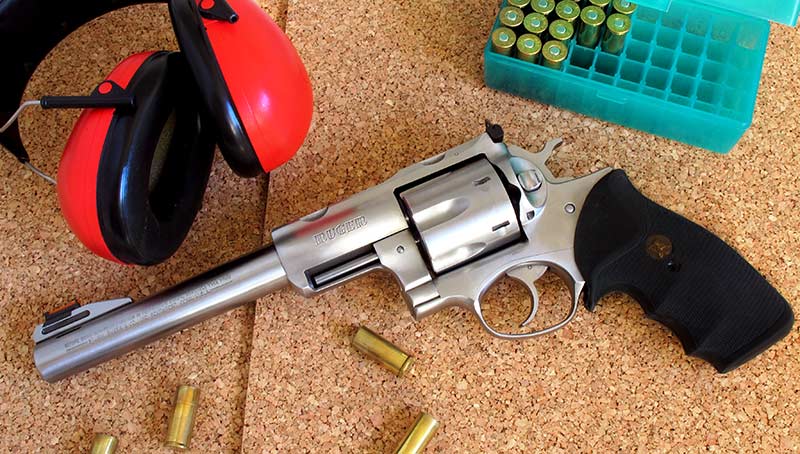
Too big: The Super Redhawk is a great gun, but too heavy for many.
It’s tough to shoot well when you’re fatigued and, like Goldilocks,
you may find you’d rather take a nap.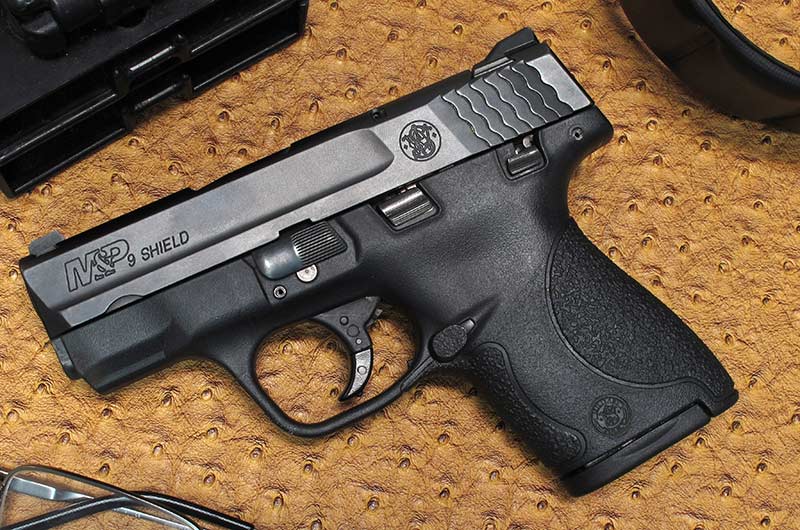
S&W M&P: This truncated, striker-fired 9mm is small
enough for daily carry, but know its limitations!
This One’s Too Heavy
Perceived recoil is a complicated topic. It comes down to a number of issues, but I’d say the biggest factor is the mass of the gun itself. Most shooters don’t particularly like recoil. Even if it doesn’t physically hurt, it’s hard not to fight against the psychological tendency to really muscle down on the gun to contain a small explosion as best as possible. (Men, take note of this: if your lady didn’t like shooting your Desert Eagle, the solution isn’t a J-Frame or M&P Shield. As a general rule, when chambered in the same caliber, small guns will almost always buck harder than big ones.)
Of course, this knowledge caused me at times to buy the heaviest gun I could find when I needed to fill a hole in my collection. When it came time to choose a .44 Magnum, I settled on the Ruger Super Redhawk. Beefy doesn’t begin to describe it. It’s a 53 oz. hunk of stainless steel (it’s just under 3.5 lbs.). The good news is it makes .44 Magnum rounds seem tame. The bad news is, it’s fatiguing to hold this amount of weight out in front of you during a lengthy shooting session. Especially if you’re running more moderate .44 Specials through the gun as I often do. No fault to Ruger, by the way. It’s simply a case of a great gun being used for a role that doesn’t capitalize on its strengths.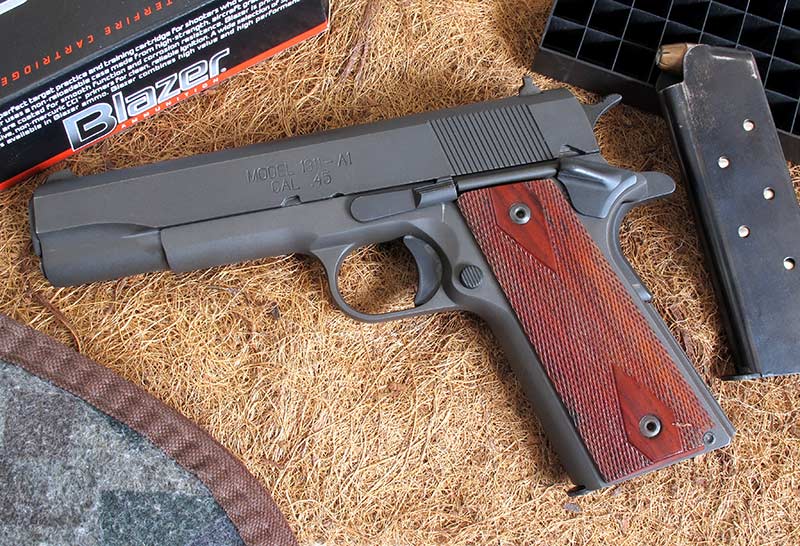
The venerable 1911: Thanks to a grip frame accommodating hands large and small, Browning’s masterpiece is something that works great for a lot of folks.
This One’s Too Old
Even though I’m a guy in my mid-30’s, I still have a sense of nostalgia for timeless designs, recalling a time when things were different. I’m bored by most polymer guns. In fact, I’d go so far to say most current handguns have all the lines of a TV remote.
So if new is lame, then old must be a heck of a lot better, right? Let me cite my ownership of a Colt 1908, a High Standard Supermatic Citation and about a half-dozen military surplus handguns. Across all of the internet forums you’ll read time and time again these old beauties outperform their modern equivalents.
Well, they only sometimes do, and only when they work. My High Standard has given me some of the best groups I’ve ever shot. On other days, it’s given me enough feeding headaches to end a shooting session prematurely.
As for much older guns? As I’ve written before, it may be just a matter of time before something breaks, before the once-plentiful supply of military surplus ammo dries up, or before you decide the lack of modern amenities (say, usable sights) begins to wear on you.
As tough a pill as it may be for traditionalists to swallow, progress has indeed been made in the last 50 to 100 years.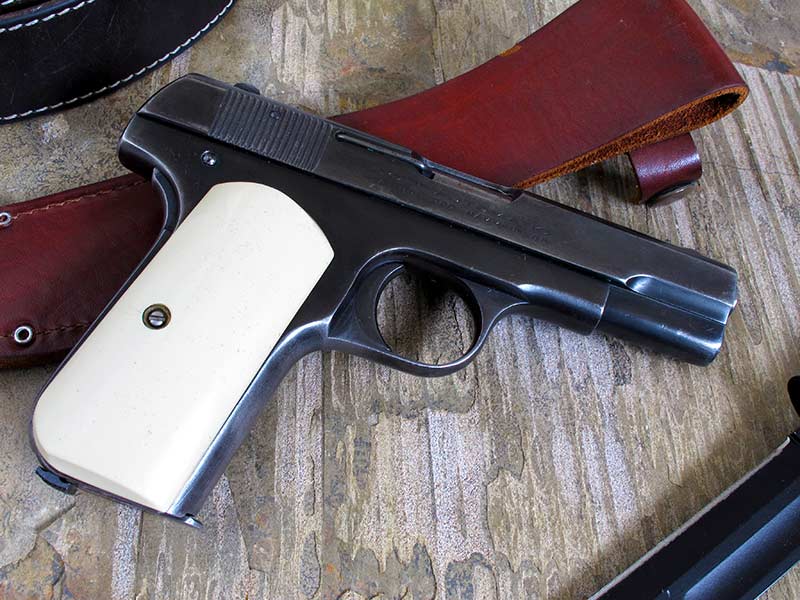
Colt 1908 pocket auto. OK, it’s beautiful and accurate but a bit fragile.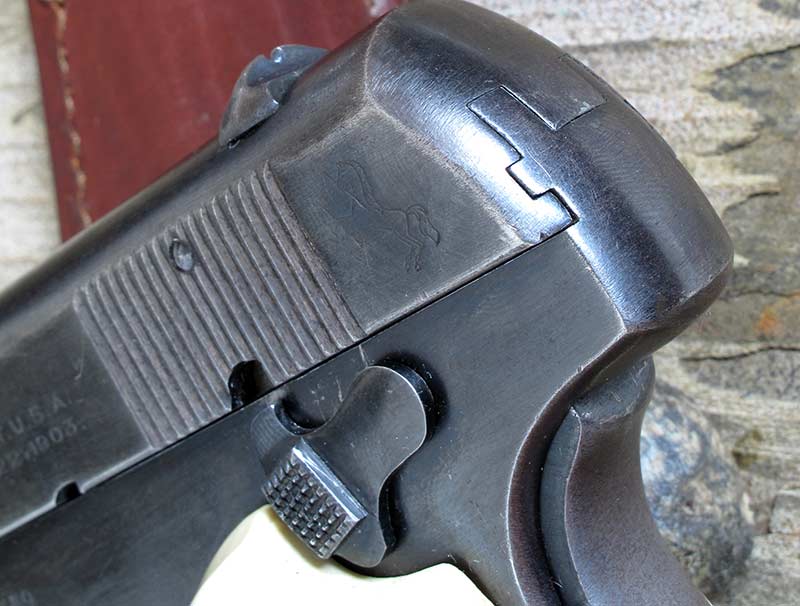
Colt 1908 pocket auto. OK, it’s beautiful and accurate but a bit fragile. And those minuscule sights (inset)? Ha!
Toward A Solution
First, a lot can be gained by giving up the idea of being a beautiful and unique snowflake among your fellow shooters. Weirdo and oddball guns are fun to shoot — provided you have more stable workhorses in your collection.
I’ve found there’s a reason you see so many similar product offerings out there — after all, a medium-frame, medium-weight handgun with a barrel length of about 4″ tends to work pretty darn well for most people. Usually it’ll work even better with a rail, good sights and a thumb-mounted magazine release. And a polymer frame if you plan on lugging it around. Is this expected? Maybe even a little boring? Sure. But maybe you’ll find an accurate and dependable gun outweighs the novelty factor.
An alternative is to explore some of the products offering (reversible) modifications for those times when you get a crazy idea or want to move in a new direction. A Dan Wesson revolver, new or gently used, can be modified for grip size, weight and barrel length. Conversion kits allow you to try out a new caliber on a frame you know already works for you. If you’re a 1911 owner, consider having a gunsmith fit you a new slide assembly longer or shorter than the one you’ve got.
And, hey: there’s another reading of Goldilocks. She only found what she liked after test-driving all kinds of merchandise owned by other people. Goldilocks did so by breaking and entering (which I don’t recommend). Instead, you’d be surprised how much you can try out just by striking up a polite conversation with another shooter at the range. Most of them are happy to talk about what they like — and don’t like.
I’ll leave you with this thought: my friend Jeff, the owner of American Gunworks in Burbank, California, said something wise to me not long ago: “There’s no perfect gun. If there was, we’d just sell this one gun to anyone who walked through the door.”
The closest you can get to something perfect for you is almost certainly some kind of handgun that doesn’t approach the extreme edges of any design parameter. It’s not too big, but not too small. It isn’t too heavy, but it’s not too light. It has enough power to get the job done, but not more than required.
With just a bit of secondhand wisdom — either mine or Goldilocks’ — here’s hoping your collection becomes something much more fulfilling than just you caretaking a bunch of guns you never shoot.